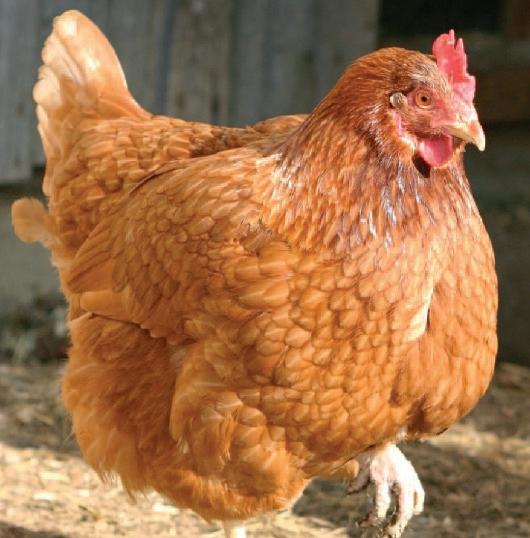
3 minute read
ANIMAL HEALTH
The health of hens is of central importance for a high laying performance and a strong eggshell
The liver plays an important role in this, as it performs a variety of vital functions. All nutrients are transported via the blood from the digestive tract to the liver, where they are stored, transformed or transported further.
Advertisement
Fatty liver syndrome (FLS) is one of the most common metabolic disorders in laying hens. This non-contagious disease is characterized by excessive fat accumulation in the liver, subsequent liver rupture, haemorrhage, and sudden death in commercial laying hens. Poultry can develop fatty liver at two stages of the laying cycle. First, during peak production periods, young laying hens are not always able to increase their feed intake to meet their energy needs for egg laying. Second, reduced egg production at the end of the laying cycle results in lower energy requirements. This leads to the conversion of carbohydrates to fatty acids in the liver. Other factors affecting the development of FLS include lipotropic deficiency, mycotoxins, inflammatory diseases, stress and choline deficiency.
Livervital optimally supports lipid metabolism and helps reduce fatty liver formation. The ingredients used in Livervital have been carefully selected for their positive effect on liver protection and fat metabolism. Choline chloride promotes the removal of fats from the liver, as well as the formation of lipoproteins. The B vitamins in Livervital act as coenzymes for basic body functions, with the main functions being in carbohydrate, fat and amino acid metabolism. Methionine inhibits the accumulation of lipids in the liver and is important for repair and rebuilding processes. Vitamin E is needed for cell metabolism and acts as an antioxidant. Betaine, along with methionine, protects against fatty liver and may improve overall animal performance. L-carnitine helps kidneys and liver detoxify, remove harmful substances and provides energy. Milk thistle helps regenerate liver cells and prevent toxin invasion. Bile flow and pancreas function are promoted by artichoke extract. In this way, toxic substances can be eliminated.
In conclusion the liver plays a crucial role in the overall health of the animals and therefore in the laying performance. Livervital can reduce the risk of fatty liver by promoting fat metabolism and supporting liver functions.
For more information, visit www.miavit.com
THE EFFECTS OF ESSENTIAL OILS ON COCCIDIA
Calf coccidiosis is a common health issue in calves from around 3 weeks old until 1 year of age. The disease is caused by protozoan parasites of the Eimeria genus and is transmitted through oocysts that are found in the feces of the animals. The disease mainly occurs where animals come together or are crowded and where feces are more concentrated in the environment. Coccidiosis outbreaks are also occasionally seen when young and older calves are grouped together. Calves suffering from subclinical coccidiosis show no typical symptoms. They can lack appetite and have a decreased feed efficiency because of damaged intestines. All of this can lead to poor growth rates and weight gains. Clinical symptoms of coccidiosis can be anorexia, depression, abdominal pain, dehydration, acute weight loss, weakness, and diarrhea, of which diarrhea is the most common symptom.
Natural alternatives
Essential oils and plant extracts are becoming more popular as alternatives in animal production. In the first place because the general public is demanding a greener supply chain, but also because of the limitations of traditional solutions such as bacterial resistance. Essential oils are very complex structures (in comparison to the usual single synthetic compounds) and it is this complexity that makes resistance to be less likely.
In line with the growing attention for safe and efficient alternatives, Resco is creating a range of phytotherapeutic boluses. Coxicryptop contains (amongst others) essential oils from clove, cinnamon, and eucalyptus and extracts from garlic.
Coxicryptop study
A study was done on 18 calves to check the effect of Coxicryptop on the amounts of oocysts in feces, in comparison to the effect of two known coccidiostats. 9 calves received Coxicryptop and 9 calves received the two coccidiostats. Results show that the calves that received the boluses have comparable numbers of oocyst per gram as the calves that received the traditional coccidiostats. Furthermore, the group of calves that received Coxicryptop gained on average 30 grams per day more than the control group. It is concluded that Coxycryptop is a satisfying natural alternative to coccidiostats.
For further information, visit www.resco-global.com












